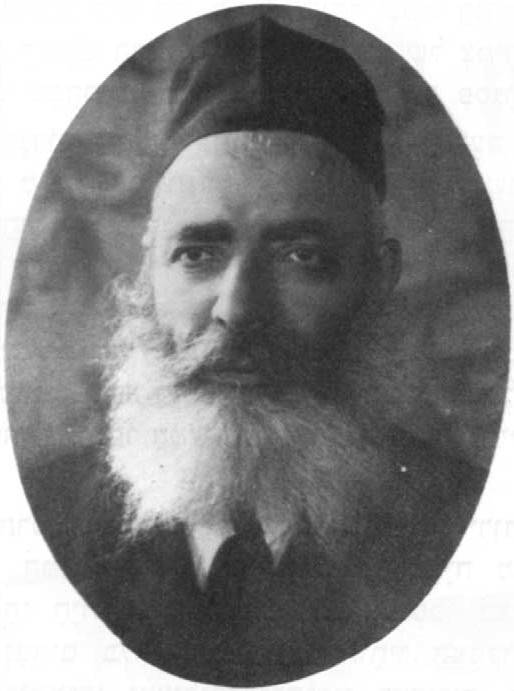  |
|
| |||||
The next scheduled issue is for parshas Eikev. 
This Google Custom Search looks only in this website. Agudath Israel Statement on American Government Officials' Positions on Israeli Judicial Reform
Agudath Israel of America takes no position on the Israeli government's proposed judicial reforms. But, whatever the merits or shortcomings of that plan, American lawmakers and other government officials, while they are entitled to their opinions, should not be seeking to use their positions of power to meddle in the internal affairs of another sovereign democratic state.
The evening opened with some short remarks from HaRav Eichenstein about chinuch in general:
Many are mistaken about the essence of chinuch. It is important to understand what is really going on, since a mistaken understanding of the roots of chinuch may cause many problems. We will try to touch on the essential meaning of the word "chinuch."
We find the word chinuch used in the context: chanukas hamizbei'ach. Chanukas hamizbei'ach certainly does not mean forming proper habits since the mizbeiach has no need of this. The mizbeiach gets chinuch through being anointed with oil, or through its being used in avodah. And then it gets chinuch once and for all.
The essence of the chinuch of the mizbeiach is bringing out the kedusha that was already latent in it, from potential to actuality. It has to come to expression. They originally came and infused it with potential kedushah, but it was lacking the chinuch that would bring out this potential to actuality, to become real. The way to bring out and to uncover the kedushah that it latent in it is with the shemen hamishchah or through using it for avodah. This is the action that creates actual kedushah in the mizbeiach. It brings out the latent kedushah into practice.
This is the real idea of chinuch of children to mitzvos. When a child is born, he or she has a latent power of kedushah. However in the early stages the kedushah is just potential. It must be drawn out into actuality.
Part II
This obituary of HaRav Simcha Zissel of Kelm zt"l was first published in print forty years ago. It is now being published online for the first time.
The first part of this essay about one of the major disciples of Rav Yisroel Salanter discussed some of the main points of the Kelmer approach directed by R' Simcha Zissel Ziv, the Alter of Kelm. Torah is the elixir of life, but only when learned and applied by one who has perfected himself.
One of the most important principles was self-control, including control of one's thoughts. This was practiced and perfected in Kelm. One must continually think, but his thoughts must be under control. He also stressed orderliness, and insisted on it in the Beis HaTalmud. This was in order to cultivate menuchas hanefesh, which was also considered a crucial trait of an oved.
The leftist anarchists are very depressed lately. What haven't they done to damage the Israeli economy?
They have badmouthed Israel all over the world. They have declared that Israel is becoming a dictatorship and whoever invests in it will lose his money. They have tried to get the international credit-rating companies to lower Israel's credit. They have told everyone to send their money away. They even got into the White House to enlist Joe Biden for their cause.
On the day after the Reasonableness law passed, things looked good for them. The Tel Aviv stock exchange (TASE) fell, the shekel fell and it looked like their predictions of catastrophe were coming true.
But sooner than not, things changed. Investors realized that there is no direct connection between business and this sort of politics. Those who invest in China and Thailand or Singapore — countries that do not excel in their democratic governments — have no reason not to invest in Israel, as long as it is stable. So the Tel Aviv bourse recovered.
* * *
Outstanding Articles From Our Archives
Opinion & Comment
This a compendium of independent stories and saying of the Steipler Gaon about chinuch. The first part, published on parshas Mattos, observed, among other things, that people used to be happy because they overcame adversity simply in making a living and running a household. Now those tasks do not present difficulties that must be overcome, so people are not happy. The only case where there is difficulty is in Torah learning. If the husband toils in Torah and the wife supports him and encourages him, they can both have a feeling of satisfaction in successfully learning Torah. The Steipler was also quoted as being against spoiling children, and as recommending a generally gently touch, though not ruling out hitting in some cases such as not saying a brochoh or the child hitting another cruelly.
Negative Influences
The problems posed by bad neighbors or by a detrimental environment have to be dealt with wisely. It is interesting to note the Steipler's instructions to someone he knew, who asked what he should do about a neighbor who had a television in his house.
"I asked the Steipler: The neighbor's granddaughter has come to him for a short stay. My daughter plays with her and I don't know how to warn my daughter not to go into this neighbor's house where the TV is. Can I for example tell my daughter that someone who watches TV is called a rosho? That could lead to problems if my daughter tells her friend what I said. She would tell her grandfather straight away and it would cause a quarrel between neighbors. That's how I put the question.
"Our teacher responded, `Don't tell her that someone who watches TV is merely called a rosho. Tell her that by watching TV one actually becomes a big rosho! Every image that a young child sees takes root within him and never leaves him. It involves a danger to life! The damage is indescribable.'
"He then added, `You have to train your daughter and you don't need to worry about it leading to a quarrel. The neighbors also need to know' . . . "
Opinion & Comment
by HaRav Tzvi Drabkin
The subject of bein hazmanim needs clarification. On the one side, there is a definite advantage to refreshing oneself and renewing one's strength. We are witness to the fact that the return to the study benches after a vacation break is accompanied by renewed fervor and enthusiasm, and constitutes a great springboard for growth in Torah.
On the other hand, it is known that "all beginnings are difficult," and only after one overcomes those difficulties and enters a regular schedule of toil in Torah -- only then can one experience the serenity, satisfaction and peace of mind that accompanies true exertion in study.
This is what we find in the Torah, "And he saw rest that it was good, and he bent his shoulder to bear" (Bereishis 49:14). For only if one perseveres past the hardships of the beginning can one arrive at the Torah of peace. The Chazon Ish said, "It is easier to study for eighteen hours a day than for six hours." If this is true, then the vacation break lifts off the burden of Torah-toil and catapults one back to the difficulties of the beginning.
|
|||||




.jpg)



